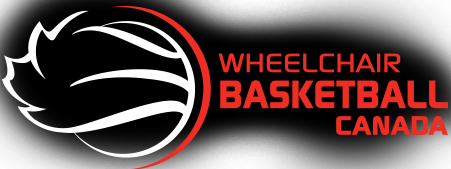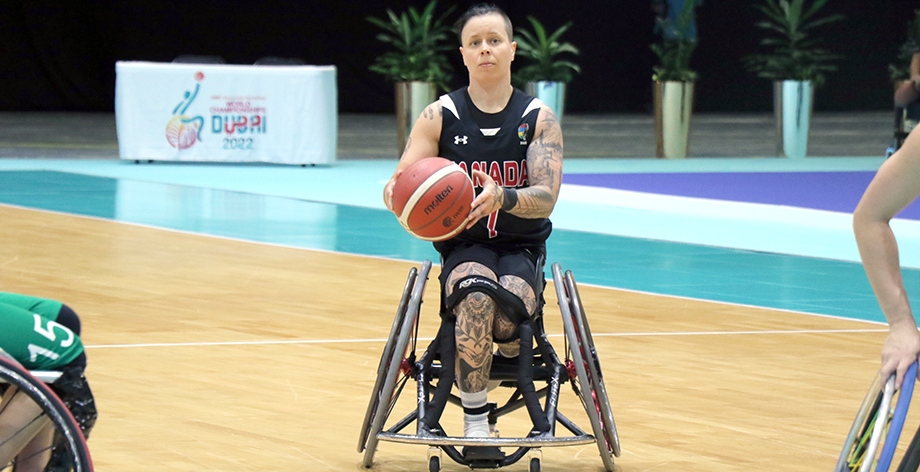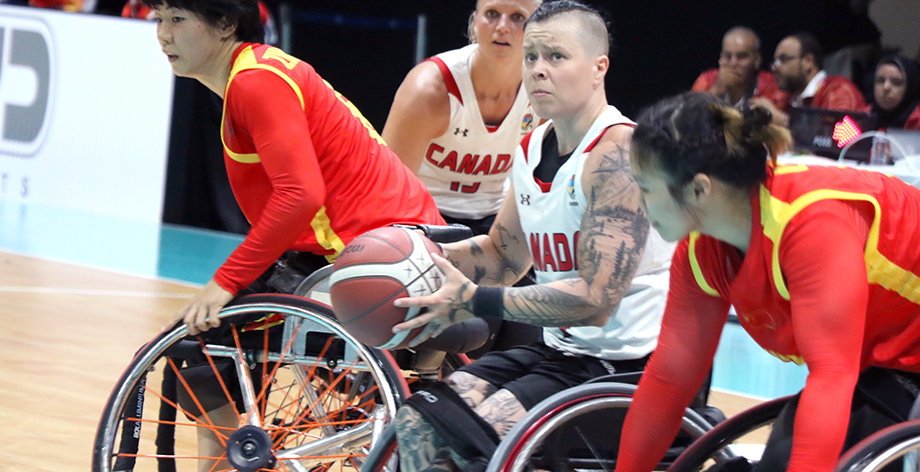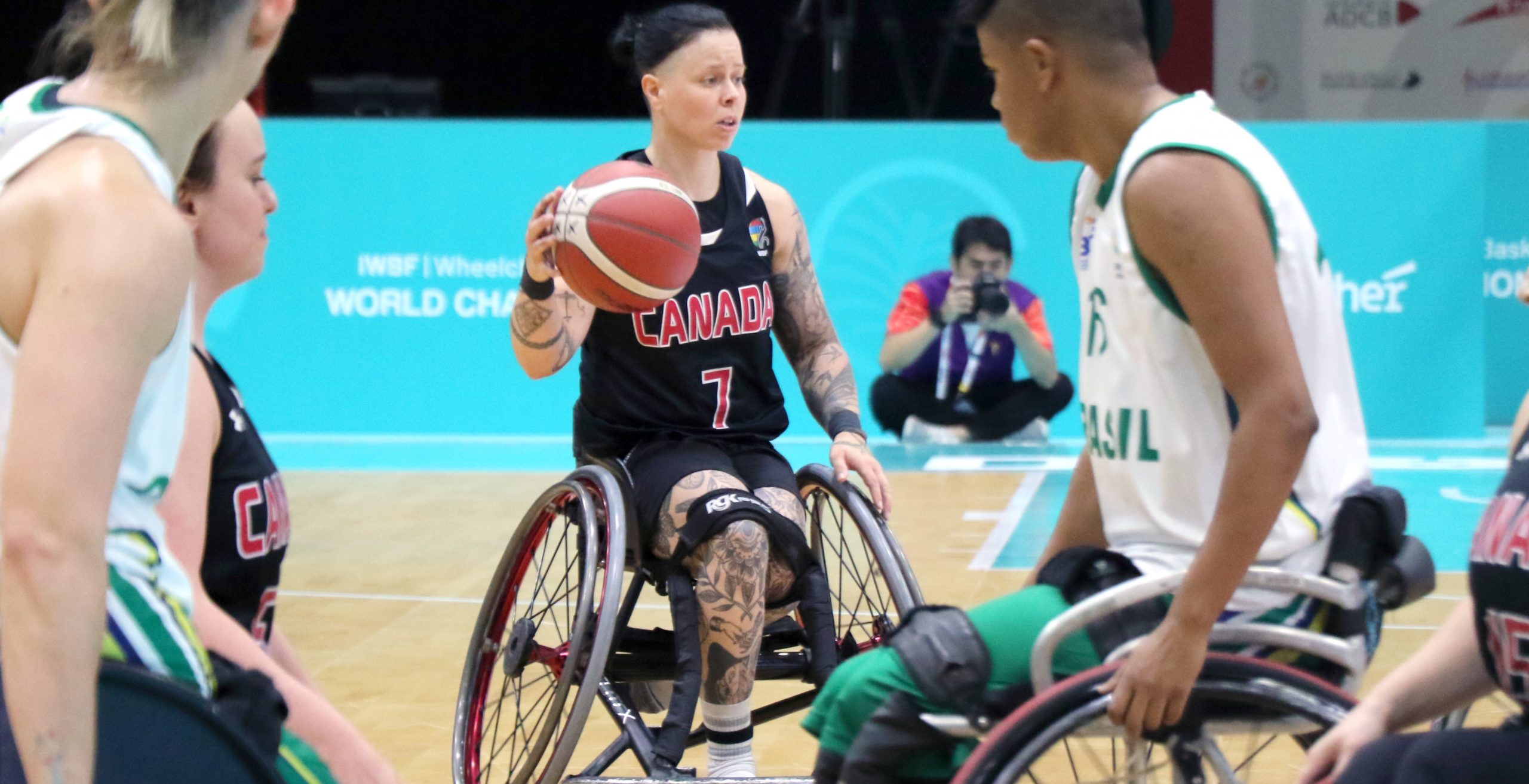Cindy talks about her journey growing up in Quebec City, her cancer diagnosis and finding parasport in this month’s Athlete Spotlight presented by Toyota
I was born in Rivière-du-Loup, about three hours east of Quebec City, and I moved to Quebec City when I was about seven years old. I grew up mainly in Quebec City.
I grew up around sport. We have many mountains and lakes, so I grew up alpine skiing every weekend—a lot of soccer. Elementary school was pretty similar to everywhere else – a pretty safe environment. My favourite subject was probably PE, but I liked school in general, which is why I’m still in school.
My first introduction to sport would’ve been alpine skiing when I was one or one-and-a-half years old – that’s pretty normal here – many kids start young, not competitively – competitive skiing starts at about six years old.
Quebec, for real, is an excellent sporting environment – you go outside, and people are biking everywhere.
I started playing competitive soccer when I was about seven. I played hockey, skateboarding, BMX, and golf – I golf a lot. I play a lot of sports.
Cancer Diagnosis
I was 11 when I first broke my pelvic bone playing football. During a game, I got hit from behind and suffered an open hip fracture. When I went to the hospital, they saw a mass, a tumour. They thought it was benign at first, so I took a whole year and did rehab for my hip.
Then, at the end of the year, at the end of my alpine skiing season, they saw the tumour had grown a little bit, so they did a biopsy just in case. They did a biopsy, which was cancerous, so they diagnosed me with Ewing sarcoma, a bone cancer. It was located in my left pelvis.
They surgically removed my left pelvis and left femur, and replaced everything – they did a pretty extensive 15-hour surgery. I did about a year-and-a-half of chemo, and they initially gave me a one to three-month chance of survival.
I had an amazing medical team behind me, for real. Even my family, my parents – everyone was super supportive. When you’re 12, you don’t fully understand what’s happening. You see people dying of cancer in movies or old people dying of cancer, but you don’t really know what it is. My family was like, ‘Hey, we’re going to go day-to-day and just get through it.’
It was not easy, obviously. It was quite a challenge, but my parents made it easier for me to understand what was happening. We went day-to-day and got through it together.
At first, the doctors gave me a 1-3 per cent chance survival rate – that’s the rate for Ewing sarcoma – three months max.
I wasn’t really thinking about percentages – you just get through it. Because of my surgery, I was forced to my bed for a year and a half – that was the hardest part since I was so active.
After that, I went back to school. Going back to school was not easy because I got bullied quite a bit, but what helped me was sport and wheelchair basketball – I also did a little bit of swimming and track – but really, it was wheelchair basketball. I started when I was about 15-16, and it took me out of the bad place I was in.
Back to sport
Swimming was my first introduction to parasport – just in rehab with my physio. She introduced me to the sport. Then I did some para-swimming competitions.
After that, I got into track for about three months. I went to Canada Games in 2005 as a track athlete. I competed against Melanie Hawtin – that was fun – she crushed me. My track career was short-lived – track was not my favourite sport.
I met Chantal Petitclerc and Dean Bergeron – two great Paralympians in track – they were two great mentors for me to show me I could participate in competitive sport again and go to a high level with it. They’re both still there for me – I talk to them quite often.
I got involved in wheelchair basketball because I wanted something that was moving a little bit more. I asked my physio, and we went to practice. I started in Quebec on a minis team. I did one year, one Nationals and then Canada Winter Games in 2007 and made the Senior Women’s National Team in 2007 as well. It was a fairly fast progression.
Realizing potential in wheelchair basketball
In minis, my first year, Tim Frick came to talk to me – everyone was at Nationals. Tim told me a couple of tricks. I knew I had to work hard. That whole year, I dedicated to basketball and worked hard. I also got recruited to go to the University of Alabama in 2007-08. Everything started happening fast in 2007-08 for me.
I had the Canada Games in 2007, my first Paralympics in 2008, I started university in Alabama – I didn’t speak English – everything happened fast. I took each experience as it came.
Winning gold at the 2007 Canada Games was great. That was when I first met Marie-Philip Poulin, the legendary hockey player. I remember the hockey girls from Quebec and Ontario were all at our final – the crowd for that gold medal game was insane.
We won by one, and it was a great experience. It was my first bigger competition in wheelchair basketball, and I’m always going to remember that.
Making the SWNT
When I first made the Senior National Team, I was young, and the age gap was quite significant – I think I was 10 years younger than everybody else. That was a big adjustment for me, but the girls were so welcoming, and they helped me from the start.
Danielle Peers, Chantal Benoit, Marni Abbott-Peter – all those athletes are still around helping the kids, but they were there for me on the team. I really learned from the best. I felt part of the team. Of course, I didn’t play as much, but I learned a lot.
I don’t remember too much about my first Paralympics in Beijing. The first one is always crazy. I remember the opening ceremony. I was 17 years old. I remember the stadium – I think there were 50-60,000 people – the stadium was jam-packed. My parents got to the ceremony late, and they were at the top of the stadium and said I looked like this tiny stick figure because it was so packed.
It was a good experience. I don’t remember too many specifics about the actual games, but it was a good team, we were all included, and it was fun. I remember more of the experience around my first Games.
When I first started in sport, my goal was really to go to the Olympics in alpine skiing. Walking into the opening ceremony in Beijing, that’s what I remember the most: four years ago, I was in a hospital bed, and now I’m at the Paralympics. When you see the flame at the opening ceremony, that’s the moment you kind of watch on TV growing up – that was happening in front of me, so I was pretty happy.
Attending Alabama
I moved to Alabama in October 2007; I went down there to train. I started school there in January 2008. I completed my first semester before going to Beijing.
I went down there; I didn’t speak English – I had to pull out my dictionary. It was quite different. It’s definitely a different culture for a French Canadian going down there.
It was the first time I played on an all-female team other than with the National Team. That was great.
I did my undergrad and my first masters at the University of Alabama. I taught in the Kinesiology Department for two years as well.
I chose exercise science because I wanted to get into the medicine side – I did my pre-med and exercise physiology for my masters.
Moving to USC
After that, I attended USC in California and did biomedical engineering and my PhD in biomedical engineering.
Moving from Quebec to Alabama and then Alabama to LA – LA was quite a significant change from Alabama. I always wanted to surf and go out west, so I went to study there. USC is the best school for biomedical engineering in the States.
It was different. Different culture, people from all over the world. It’s warm, and the school was awesome. I did a lot of CrossFit when I was there; it was my main focus. I competed in adapted CrossFit.
I was in LA for about three years – I did a master’s/PhD combined.
I went surfing almost every weekend. I would go down to San Onofre, between LA and San Diego – it was pretty fun.
I love school. I’m starting a new PhD in neuroscience in January, but on the medicine side in Quebec City at Laval.
Musical family
Music is part of my family. My grandparents both play music and my parents too. My grandparents sing, play the piano, play the violin. We’re a really musical family.
My mom plays piano, and my dad sings. I started playing piano when I was about two. I got my first piano when I was three, and I did conservatory piano for about 10 years – I did a lot of music study growing up.
In high school, I couldn’t do PE because of my wheelchair, so I was in the music program – that’s where I picked up the drums, guitar and saxophone – whatever instrument I wanted to try.
Advice for a new athlete
Really, keep pushing hard. Train hard. lt’s hard to start. It’s a challenging sport. It’s hard to be in a team environment and get out there, but keep working hard. If that’s what you really like, and you love the sport, keep with it, work hard, and take every single opportunity that you can get that comes to you to get better, and then you’ll be a great player, and you’ll be on the National Team in no time.





